
Last Updated At: 09-Aug-2024
20 Famous Places To Visit In Cuba 2024
Cuba, an island nation in the Caribbean, beckons with its rich tapestry of history, culture, and natural beauty. Exploring Cuban cultural landmarks is like stepping into a time capsule, where vintage cars line the streets, colonial architecture stands tall, and rhythms of salsa music echo through vibrant cities. From the lively streets of Havana to the serene beaches of Varadero, Cuba offers an array of experiences that cater to every traveller's taste.
The capital city, Havana, encapsulates the essence of Cuba. Some of the best beaches in Cuba are in Havana. Here, cobblestone streets are lined with pastel-hued buildings, and grand plazas exude an air of faded elegance. While exploring Havana's architecture, you'll encounter architectural marvels, lively markets, and cosy cafés. The Malecón, a seaside promenade, comes alive in the evenings with music, dance, and the captivating sunset over the Caribbean Sea.
List Of 20 Best Places To Visit In Cuba
Beyond Havana, Cuba unfolds a diverse landscape of natural wonders. Viñales Valley, a UNESCO World Heritage Site, is enchanted with its striking karst formations, tobacco fields, and underground caves. The beaches of Varadero and the cayos, like Cayo Coco and Cayo Guillermo, boast powdery sands and crystalline waters, making them ideal for relaxation and water sports. Meanwhile, the Sierra Maestra mountain range offers opportunities for hiking and exploring coffee plantations, while Trinidad enchants with its preserved colonial architecture and vibrant arts scene.
- Old Havana (Habana Vieja) | Exploring the Historic Heart of Havana
- Varadero Beach | Sun, Sand, and Serenity
- Viñales Valley | Natural Wonders of Viñales Valley
- Trinidad | Discovering Trinidad
- Cienfuegos | The Pearl of the South
- Santa Clara | Revolutionary History in Santa Clara
- Santiago de Cuba | Rhythms of the Caribbean
- Camagüey | Art and Culture in Cuba's Heart
- Baracoa | Nature's Paradise on Cuba's Eastern Coast
- Playa Paraíso, Cayo Largo | Tranquillity and Turquoise Waters
- Valle de los Ingenios | Sugar Mills and Scenic Beauty
- Remedios | Festivals and Colonial Heritage
- Holguín | Cultural Gem in Eastern Cuba
- Topes de Collantes | Nature's Retreat in the Escambray Mountains
- Guanajuato | Exploring Cuba's Underground Wonder
- El Nicho | Waterfalls and Wildlife in Cuba's Escambray Mountains
- Playa Ancón | Sun, Sand, and Scuba in Trinidad
- Pinar del Río | Tobacco Fields and Limestone Hi
1. Old Havana (Habana Vieja) | Exploring the Historic Hear
Old Havana, also known as Habana Vieja, is a living museum of Spanish colonial architecture. Narrow streets are lined with colourful buildings, grand cathedrals, and impressive plazas. Notable attractions include the Catedral de San Cristóbal, Plaza de la Catedral, and the Castillo de la Real Fuerza. Strolling through this district, visitors are transported back in time, immersing themselves in the rich history and culture of Cuba.
- Major Activities: Stroll through cobbled streets, visit historic forts like El Morro, and explore the vibrant squares like Plaza de la Catedral.
- Nearby Tourist Places: Malecón, Museo Nacional de Bellas Artes.
2. Varadero Beach | Sun, Sand, and Serenity
Varadero Beach is a quintessential Caribbean paradise. With its soft, powdery sands and azure waters, it's a haven for beach lovers. The area offers a plethora of water-based activities, from snorkelling to windsurfing. There's also a vibrant nightlife scene, with numerous bars and restaurants. Luxury resorts along the coastline provide an idyllic setting for relaxation and enjoying the stunning sunsets.
- Major Activities: Sunbathing, water sports, snorkelling, and visiting nearby cays.
- Nearby Tourist Places: Cueva Saturno, Varahicacos Ecological Reserve.
3. Viñales Valley | Natural Wonders of Viñales Valley
Viñales Valley, nestled in the western part of Cuba, is a UNESCO World Heritage site. This picturesque region is characterised by dramatic limestone formations called "mogotes," which rise dramatically from the fertile valley floor. The area is perfect for nature lovers, offering opportunities for hiking, cave exploration, and horseback riding through the stunning countryside. Viñales is also renowned for its tobacco farms, providing insight into the traditional process of cigar production.
- Major Activities: Hiking and caving in the Mogotes, exploring tobacco farms, and visiting Cueva del Indio.
- Nearby Tourist Places: Mural de la Prehistoria.
4. Trinidad | Discovering Trinidad
Trinidad, a beautifully preserved colonial town, transports visitors back to the 18th and 19th centuries. Cobblestone streets lead to colourful houses adorned with wrought-iron grilles. The Museo Romántico provides a glimpse into the lives of wealthy sugar barons, while the Plaza Mayor is the central gathering point. Nearby, the Topes de Collantes nature reserve offers a cool retreat with waterfalls, caves, and lush forests.
- Major Activities: Visit Plaza Mayor, explore Trinidad's colonial architecture, and hike to El Cubano waterfall.
- Nearby Tourist Places: Valle de los Ingenios, Playa Ancón.
5. Cienfuegos | The Pearl of the South
Known as the "Pearl of the South," Cienfuegos boasts an elegant blend of French influence and Cuban culture. The city's layout is characterised by wide boulevards and neoclassical architecture. Parque José Martí, the main square, is surrounded by impressive buildings like the Palacio de Gobierno. The Palacio de Valle, an architectural masterpiece, and Punta Gorda, with its charming waterfront, add to the city's allure.
- Major Activities: Explore Parque José Martí, visit Palacio de Valle, and stroll along Punta Gorda.
- Nearby Tourist Places: El Nicho, Guanaroca Lagoon.
6. Santa Clara | Revolutionary History in Santa Clara
Santa Clara holds a special place in Cuban history as the site of the decisive Battle of Santa Clara during the Cuban Revolution. Visitors can explore various monuments and museums dedicated to Che Guevara, a key figure in the revolution.
- Major Activities: Visit Che Guevara Mausoleum, explore Tren Blindado, and stroll through Parque Vidal.
- Nearby Tourist Places: Remedios, El Bosque Zoological Garden.
7. Santiago de Cuba | Rhythms of the Caribbean
Santiago de Cuba is known as the cultural capital of Cuba, with a vibrant music and dance scene. It's the birthplace of genres like son and salsa. The city's rich Afro-Cuban heritage is celebrated in its festivals, including the famous Carnival.
- Major Activities: Explore Castillo del Morro, visit San Juan Hill, and enjoy live music at Casa de la Trova.
- Nearby Tourist Places: Gran Piedra, Baconao Park.
8. Camagüey | Art and Culture in Cuba's Heart
Camagüey's historic centre is a UNESCO World Heritage site known for its labyrinthine layout designed to confuse pirates. The city also boasts a thriving arts scene, with numerous galleries and studios.
- Major Activities: Explore Plaza del Carmen, visit Casa de la Ciudad, and enjoy local theatres.
- Nearby Tourist Places: Santa Lucía Beach, Sierra del Chorrillo.
9. Baracoa | Nature's Paradise on Cuba's Eastern Coast
Baracoa is a remote and stunning destination on Cuba's eastern coast. It's surrounded by lush rainforests, rivers, and mountains. The area is known for its biodiversity, and El Yunque, a flat-topped mountain, is a popular hiking spot.
- Major Activities: Visit Yumurí Canyon, explore El Yunque National Park, and relax at Playa Maguana.
- Nearby Tourist Places: Alejandro de Humboldt National Park.
10. Playa Paraíso, Cayo Largo | Tranquillity and Turquoise Waters
Playa Paraíso in Cayo Largo is a secluded beach with powdery white sand and crystalline waters. It's a perfect spot for relaxation and water activities like snorkelling and diving in the nearby coral reefs.
- Major Activities: Sunbathing, snorkelling, windsurfing, and swimming.
- Nearby Tourist Places: Cayo Rico.
11. Valle de los Ingenios | Sugar Mills and Scenic Beauty
Valle de los Ingenios, also known as the Valley of the Sugar Mills, is a UNESCO World Heritage site. It offers a glimpse into Cuba's sugar industry during the 18th and 19th centuries. The landscape is dotted with the remnants of old sugar mills, once the economic backbone of the region. The surrounding natural beauty and hiking opportunities make it a must-visit.
- Major Activities: Explore the Manaca Iznaga Tower, visit sugar mills, and enjoy horseback riding.
- Nearby Tourist Places: Trinidad, Ancón Peninsula.
12. Remedios | Festivals and Colonial Heritage
Remedios is a charming town known for its lively festivals, particularly the Parrandas, one of Cuba's oldest and most colourful celebrations. The town's historic centre boasts well-preserved colonial architecture, including the Church of San Juan Bautista, dating back to the 16th century.
- Major Activities: Experience Las Parrandas festival, visit Iglesia Mayor San Juan Bautista.
- Nearby Tourist Places: Santa Clara, El Nicho.
13. Holguín | Cultural Gem in Eastern Cuba
Holguín, known as the City of Parks, is a cultural hub in eastern Cuba. It's home to a thriving arts scene, with numerous galleries and theatres. The city's central plaza, Parque Calixto García, is a focal point for locals and visitors alike.
- Major Activities: Explore Loma de la Cruz, visit Museo Provincial La Periquera.
- Nearby Tourist Places: Guardalavaca Beach, Gibara.
14. Topes de Collantes | Nature's Retreat in the Escambray Mountains
Topes de Collantes is a nature lover's paradise located in the Escambray Mountains. This protected area is known for its lush forests, waterfalls, and hiking trails. The Salto del Caburní waterfall and the Guanayara Park are popular attractions for those seeking outdoor adventure.
- Major Activities: Hike to Salto del Caburní, explore Guanayara Park, and visit El Nicho waterfalls.
- Nearby Tourist Places: Trinidad, Cienfuegos.
15. Guanajuato | Exploring Cuba's Underground Wonder
Guanajuato is famous for its extensive network of underground tunnels, which were once used for mining. Visitors can explore this unique feature, as well as the city's vibrant cultural scene, including theatres, museums, and historic sites.
- Major Activities: Visit Gran Caverna de Santo Tomás, explore Cueva La Vaca.
- Nearby Tourist Places: Pinar del Río, Viñales.
16. El Nicho | Waterfalls and Wildlife in Cuba's Escambray Mountains
El Nicho is a natural paradise located in the Escambray Mountains. It's characterised by a series of cascading waterfalls, cool natural pools, and abundant flora and fauna. The area is a haven for birdwatching and nature enthusiasts.
- Major Activities: Hike to El Nicho waterfalls, explore natural pools, and birdwatching.
- Nearby Tourist Places: Cienfuegos, Trinidad.
17. Playa Ancón | Sun, Sand, and Scuba in Trinidad
Playa Ancón, located near Trinidad, is a stunning beach known for its fine white sand and crystal-clear waters. It's an excellent spot for sunbathing, swimming, and water sports. The nearby coral reefs also offer exceptional opportunities for snorkelling and scuba diving.
- Major Activities: Enjoy white sandy beaches, go scuba diving and snorkelling.
- Nearby Tourist Places: Trinidad, Valle de los Ingenios.
18. Pinar del Río | Tobacco Fields and Limestone Hills
Pinar del Río is the heart of Cuba's tobacco country, known for producing some of the world's finest cigars. The landscape is characterised by dramatic limestone mogotes and verdant tobacco fields. Viñales Valley, a UNESCO World Heritage site, is a highlight.
- Major Activities: Visit Viñales Valley, explore Cueva del Indio, and tour tobacco farms.
- Nearby Tourist Places: Viñales, La Güira National Park.
19. Isla de la Juventud | Cuba Island of Youth
Isla de la Juventud is an island known for its natural beauty and historical significance. It's home to lush forests, caves, and pristine beaches. The island also played a role in Fidel Castro's revolutionary activities.
- Major Activities: Visit Presidio Modelo, explore Colony 5 de Septiembre.
- Nearby Tourist Places: Cayo Largo, Punta del Este.
20. Santa Lucía | Beach Bliss on Cuba's North Coast
Santa Lucía boasts 21 kilometres of uninterrupted white-sand beach along Cuba's north coast. It's a haven for beach lovers and water sports enthusiasts. The warm, shallow waters are perfect for swimming and snorkelling. The nearby coral reefs teem with marine life.
- Major Activities: Relax on the beach, windsurfing, kitesurfing, and snorkelling.
- Nearby Tourist Places: Camagüey, Nuevitas.
Exploring Cuba is an adventure that goes beyond the typical tourist spots. Venturing into off-the-beaten-path destinations reveals the true essence of this vibrant country. From the historic heart of Havana in Old Havana to the tranquil paradise of Playa Paraíso, Cayo Largo, there are hidden gems waiting to be discovered. These less-explored places offer a chance to experience Cuba's rich history, diverse culture, and breathtaking natural beauty in a more intimate and authentic way. One cannot truly experience Cuba without indulging in its delectable local cuisine. From savouring the flavours of Remedios' colonial heritage to enjoying the fresh seafood delights at Fisherman's Wharf in Havana, culinary experiences in Cuba are a feast for the senses. The fusion of Spanish, African, and Caribbean influences creates a unique and unforgettable dining adventure. So, for those seeking a travel experience that transcends the ordinary, Cuba's off-the-beaten-path destinations and its delectable local cuisine are sure to leave an indelible mark. Explore the untamed beauty, soak in the rich history, and savour the flavours of this extraordinary island nation for a truly exceptional travel adventure. So, plan your vacation with Adotrip, and enjoy a hassle-free journey.
With us, nothing is far!
Book Cuba Tour Packages
Frequently Asked Questions about Places to Visit in Cuba
Q1. What are the top attractions and experiences for travellers visiting Cuba?
A1. The top attractions and experiences for travellers visiting Cuba are:
- Old Havana (Habana Vieja)
- Varadero Beach
- Viñales Valley
- Trinidad
- Cienfuegos
Q2. Can you recommend any vibrant cities or towns that showcase Cuba's culture?
A2. Some vibrant cities are:
- Baracoa
- Remedios
- Holguín
- Guanajuato
- Santa Clara
Q3. What's the appeal of Havana's historic Old Town, and what should I see there?
A3. Some of the historic places are:
- Old Havana (Habana Vieja)
- Plaza Vieja
- Havana Cathedral
- Morro Castle
- Malecón
Q4. Are there any beautiful beaches or coastal areas to unwind in Cuba?
A4. Some beautiful beaches are:
- Varadero Beach
- Playa Paraíso, Cayo Largo
- Playa Ancón
- Santa Lucía Beach
Q5. Which cultural events or festivals offer insights into Cuban traditions?
A5. Some famous events or festivals are:
- Havana Carnival
- Santiago de Cuba Carnival
- International Ballet Festival of Havana
- Festival Internacional de Jazz de La Habana (Havana Jazz Festival)
- Festival del Habano (Havana Cigar Festival)
- Fiesta del Fuego (Fire Festival)
Q6. Can you suggest any local dishes or dining experiences that I should try?
A6. Some local dishes are:
- Ropa Vieja
- Moros y Cristianos
- Vaca Frita
- Arroz con Pollo
- Tostones
- Lechón Asado
Q7. What's the significance of the Malecón, and why is it a popular spot in Havana?
A7. The Malecón is a seaside promenade in Havana, Cuba, stretching for several kilometres along the coast. It is significant for the following reasons:
- Scenic Views of the Sea
- Social Gathering Spot
- Iconic Havana Landmark
Q8. Are there any cigar-related experiences that visitors can enjoy in Cuba?
A8. Visitors can enjoy some cigar-related experiences at these places:
- Tobacco Farm Tours
- Cigar Rolling Demonstrations
- Visiting Cigar Factories
Q9. What's the best way to explore Cuba's vintage cars and colonial architecture?
A9.Exploring Vintage Cars and Colonial Architecture in Cuba:
- Vintage Car Tours
- Walking Tours in Old Towns
Q10. How can I learn about Cuba's history, from its revolutionary past to its present?
A10. To learn about the history of Cuba, visitors can visit these places:
- Museum of the Revolution
- Bay of Pigs Museum
- Che Guevara Mausoleum
- Castillo de la Real Fuerza
- Museo Nacional de Bellas Artes
1. Old Havana (Habana Vieja) | Exploring the Historic Hear

Old Havana, also known as Habana Vieja, is a living museum of Spanish colonial architecture. Narrow streets are lined with colourful buildings, grand cathedrals, and impressive plazas. Notable attractions include the Catedral de San Cristóbal, Plaza de la Catedral, and the Castillo de la Real Fuerza. Strolling through this district, visitors are transported back in time, immersing themselves in the rich history and culture of Cuba.
- Major Activities: Stroll through cobbled streets, visit historic forts like El Morro, and explore the vibrant squares like Plaza de la Catedral.
- Nearby Tourist Places: Malecón, Museo Nacional de Bellas Artes.
2. Varadero Beach | Sun, Sand, and Serenity

Varadero Beach is a quintessential Caribbean paradise. With its soft, powdery sands and azure waters, it's a haven for beach lovers. The area offers a plethora of water-based activities, from snorkelling to windsurfing. There's also a vibrant nightlife scene, with numerous bars and restaurants. Luxury resorts along the coastline provide an idyllic setting for relaxation and enjoying the stunning sunsets.
- Major Activities: Sunbathing, water sports, snorkelling, and visiting nearby cays.
- Nearby Tourist Places: Cueva Saturno, Varahicacos Ecological Reserve.
3. Viñales Valley | Natural Wonders of Viñales Valley

Viñales Valley, nestled in the western part of Cuba, is a UNESCO World Heritage site. This picturesque region is characterised by dramatic limestone formations called "mogotes," which rise dramatically from the fertile valley floor. The area is perfect for nature lovers, offering opportunities for hiking, cave exploration, and horseback riding through the stunning countryside. Viñales is also renowned for its tobacco farms, providing insight into the traditional process of cigar production.
- Major Activities: Hiking and caving in the Mogotes, exploring tobacco farms, and visiting Cueva del Indio.
- Nearby Tourist Places: Mural de la Prehistoria.
4. Trinidad | Discovering Trinidad

Trinidad, a beautifully preserved colonial town, transports visitors back to the 18th and 19th centuries. Cobblestone streets lead to colourful houses adorned with wrought-iron grilles. The Museo Romántico provides a glimpse into the lives of wealthy sugar barons, while the Plaza Mayor is the central gathering point. Nearby, the Topes de Collantes nature reserve offers a cool retreat with waterfalls, caves, and lush forests.
- Major Activities: Visit Plaza Mayor, explore Trinidad's colonial architecture, and hike to El Cubano waterfall.
- Nearby Tourist Places: Valle de los Ingenios, Playa Ancón.
5. Cienfuegos | The Pearl of the South

Known as the "Pearl of the South," Cienfuegos boasts an elegant blend of French influence and Cuban culture. The city's layout is characterised by wide boulevards and neoclassical architecture. Parque José Martí, the main square, is surrounded by impressive buildings like the Palacio de Gobierno. The Palacio de Valle, an architectural masterpiece, and Punta Gorda, with its charming waterfront, add to the city's allure.
- Major Activities: Explore Parque José Martí, visit Palacio de Valle, and stroll along Punta Gorda.
- Nearby Tourist Places: El Nicho, Guanaroca Lagoon.
6. Santa Clara | Revolutionary History in Santa Clara

Santa Clara holds a special place in Cuban history as the site of the decisive Battle of Santa Clara during the Cuban Revolution. Visitors can explore various monuments and museums dedicated to Che Guevara, a key figure in the revolution.
- Major Activities: Visit Che Guevara Mausoleum, explore Tren Blindado, and stroll through Parque Vidal.
- Nearby Tourist Places: Remedios, El Bosque Zoological Garden.
7. Santiago de Cuba | Rhythms of the Caribbean

Santiago de Cuba is known as the cultural capital of Cuba, with a vibrant music and dance scene. It's the birthplace of genres like son and salsa. The city's rich Afro-Cuban heritage is celebrated in its festivals, including the famous Carnival.
- Major Activities: Explore Castillo del Morro, visit San Juan Hill, and enjoy live music at Casa de la Trova.
- Nearby Tourist Places: Gran Piedra, Baconao Park.
8. Camagüey | Art and Culture in Cuba's Heart

Camagüey's historic centre is a UNESCO World Heritage site known for its labyrinthine layout designed to confuse pirates. The city also boasts a thriving arts scene, with numerous galleries and studios.
- Major Activities: Explore Plaza del Carmen, visit Casa de la Ciudad, and enjoy local theatres.
- Nearby Tourist Places: Santa Lucía Beach, Sierra del Chorrillo.
9. Baracoa | Nature's Paradise on Cuba's Eastern Coast
 Baracoa is a remote and stunning destination on Cuba's eastern coast. It's surrounded by lush rainforests, rivers, and mountains. The area is known for its biodiversity, and El Yunque, a flat-topped mountain, is a popular hiking spot.
Baracoa is a remote and stunning destination on Cuba's eastern coast. It's surrounded by lush rainforests, rivers, and mountains. The area is known for its biodiversity, and El Yunque, a flat-topped mountain, is a popular hiking spot.
- Major Activities: Visit Yumurí Canyon, explore El Yunque National Park, and relax at Playa Maguana.
- Nearby Tourist Places: Alejandro de Humboldt National Park.
10. Playa Paraíso, Cayo Largo | Tranquillity and Turquoise Waters

Playa Paraíso in Cayo Largo is a secluded beach with powdery white sand and crystalline waters. It's a perfect spot for relaxation and water activities like snorkelling and diving in the nearby coral reefs.
- Major Activities: Sunbathing, snorkelling, windsurfing, and swimming.
- Nearby Tourist Places: Cayo Rico.
11. Valle de los Ingenios | Sugar Mills and Scenic Beauty

Valle de los Ingenios, also known as the Valley of the Sugar Mills, is a UNESCO World Heritage site. It offers a glimpse into Cuba's sugar industry during the 18th and 19th centuries. The landscape is dotted with the remnants of old sugar mills, once the economic backbone of the region. The surrounding natural beauty and hiking opportunities make it a must-visit.
- Major Activities: Explore the Manaca Iznaga Tower, visit sugar mills, and enjoy horseback riding.
- Nearby Tourist Places: Trinidad, Ancón Peninsula.
12. Remedios | Festivals and Colonial Heritage
 .
.
Remedios is a charming town known for its lively festivals, particularly the Parrandas, one of Cuba's oldest and most colourful celebrations. The town's historic centre boasts well-preserved colonial architecture, including the Church of San Juan Bautista, dating back to the 16th century.
- Major Activities: Experience Las Parrandas festival, visit Iglesia Mayor San Juan Bautista.
- Nearby Tourist Places: Santa Clara, El Nicho.
13. Holguín | Cultural Gem in Eastern Cuba

Holguín, known as the City of Parks, is a cultural hub in eastern Cuba. It's home to a thriving arts scene, with numerous galleries and theatres. The city's central plaza, Parque Calixto García, is a focal point for locals and visitors alike.
- Major Activities: Explore Loma de la Cruz, visit Museo Provincial La Periquera.
- Nearby Tourist Places: Guardalavaca Beach, Gibara.
14. Topes de Collantes | Nature's Retreat in the Escambray Mountains

Topes de Collantes is a nature lover's paradise located in the Escambray Mountains. This protected area is known for its lush forests, waterfalls, and hiking trails. The Salto del Caburní waterfall and the Guanayara Park are popular attractions for those seeking outdoor adventure.
- Major Activities: Hike to Salto del Caburní, explore Guanayara Park, and visit El Nicho waterfalls.
- Nearby Tourist Places: Trinidad, Cienfuegos.
15. Guanajuato | Exploring Cuba's Underground Wonder

Guanajuato is famous for its extensive network of underground tunnels, which were once used for mining. Visitors can explore this unique feature, as well as the city's vibrant cultural scene, including theatres, museums, and historic sites.
- Major Activities: Visit Gran Caverna de Santo Tomás, explore Cueva La Vaca.
- Nearby Tourist Places: Pinar del Río, Viñales.
16. El Nicho | Waterfalls and Wildlife in Cuba's Escambray Mountains

El Nicho is a natural paradise located in the Escambray Mountains. It's characterised by a series of cascading waterfalls, cool natural pools, and abundant flora and fauna. The area is a haven for birdwatching and nature enthusiasts.
- Major Activities: Hike to El Nicho waterfalls, explore natural pools, and birdwatching.
- Nearby Tourist Places: Cienfuegos, Trinidad.
17. Playa Ancón | Sun, Sand, and Scuba in Trinidad

Playa Ancón, located near Trinidad, is a stunning beach known for its fine white sand and crystal-clear waters. It's an excellent spot for sunbathing, swimming, and water sports. The nearby coral reefs also offer exceptional opportunities for snorkelling and scuba diving.
- Major Activities: Enjoy white sandy beaches, go scuba diving and snorkelling.
- Nearby Tourist Places: Trinidad, Valle de los Ingenios.
18. Pinar del Río | Tobacco Fields and Limestone Hills

Pinar del Río is the heart of Cuba's tobacco country, known for producing some of the world's finest cigars. The landscape is characterised by dramatic limestone mogotes and verdant tobacco fields. Viñales Valley, a UNESCO World Heritage site, is a highlight.
- Major Activities: Visit Viñales Valley, explore Cueva del Indio, and tour tobacco farms.
- Nearby Tourist Places: Viñales, La Güira National Park.
19. Isla de la Juventud | Cuba Island of Youth

Isla de la Juventud is an island known for its natural beauty and historical significance. It's home to lush forests, caves, and pristine beaches. The island also played a role in Fidel Castro's revolutionary activities.
- Major Activities: Visit Presidio Modelo, explore Colony 5 de Septiembre.
- Nearby Tourist Places: Cayo Largo, Punta del Este.
20. Santa Lucía | Beach Bliss on Cuba's North Coast

Santa Lucía boasts 21 kilometres of uninterrupted white-sand beach along Cuba's north coast. It's a haven for beach lovers and water sports enthusiasts. The warm, shallow waters are perfect for swimming and snorkelling. The nearby coral reefs teem with marine life.
- Major Activities: Relax on the beach, windsurfing, kitesurfing, and snorkelling.
- Nearby Tourist Places: Camagüey, Nuevitas.
Exploring Cuba is an adventure that goes beyond the typical tourist spots. Venturing into off-the-beaten-path destinations reveals the true essence of this vibrant country. From the historic heart of Havana in Old Havana to the tranquil paradise of Playa Paraíso, Cayo Largo, there are hidden gems waiting to be discovered. These less-explored places offer a chance to experience Cuba's rich history, diverse culture, and breathtaking natural beauty in a more intimate and authentic way. One cannot truly experience Cuba without indulging in its delectable local cuisine. From savouring the flavours of Remedios' colonial heritage to enjoying the fresh seafood delights at Fisherman's Wharf in Havana, culinary experiences in Cuba are a feast for the senses. The fusion of Spanish, African, and Caribbean influences creates a unique and unforgettable dining adventure. So, for those seeking a travel experience that transcends the ordinary, Cuba's off-the-beaten-path destinations and its delectable local cuisine are sure to leave an indelible mark. Explore the untamed beauty, soak in the rich history, and savour the flavours of this extraordinary island nation for a truly exceptional travel adventure. So, plan your vacation with Adotrip, and enjoy a hassle-free journey.
With us, nothing is far!
Book Cuba Tour Packages
Frequently Asked Questions about Places to Visit in Cuba
Q1. What are the top attractions and experiences for travellers visiting Cuba?
A1. The top attractions and experiences for travellers visiting Cuba are:
- Old Havana (Habana Vieja)
- Varadero Beach
- Viñales Valley
- Trinidad
- Cienfuegos
Q2. Can you recommend any vibrant cities or towns that showcase Cuba's culture?
A2. Some vibrant cities are:
- Baracoa
- Remedios
- Holguín
- Guanajuato
- Santa Clara
Q3. What's the appeal of Havana's historic Old Town, and what should I see there?
A3. Some of the historic places are:
- Old Havana (Habana Vieja)
- Plaza Vieja
- Havana Cathedral
- Morro Castle
- Malecón
Q4. Are there any beautiful beaches or coastal areas to unwind in Cuba?
A4. Some beautiful beaches are:
- Varadero Beach
- Playa Paraíso, Cayo Largo
- Playa Ancón
- Santa Lucía Beach
Q5. Which cultural events or festivals offer insights into Cuban traditions?
A5. Some famous events or festivals are:
- Havana Carnival
- Santiago de Cuba Carnival
- International Ballet Festival of Havana
- Festival Internacional de Jazz de La Habana (Havana Jazz Festival)
- Festival del Habano (Havana Cigar Festival)
- Fiesta del Fuego (Fire Festival)
Q6. Can you suggest any local dishes or dining experiences that I should try?
A6. Some local dishes are:
- Ropa Vieja
- Moros y Cristianos
- Vaca Frita
- Arroz con Pollo
- Tostones
- Lechón Asado
Q7. What's the significance of the Malecón, and why is it a popular spot in Havana?
A7. The Malecón is a seaside promenade in Havana, Cuba, stretching for several kilometres along the coast. It is significant for the following reasons:
- Scenic Views of the Sea
- Social Gathering Spot
- Iconic Havana Landmark
Q8. Are there any cigar-related experiences that visitors can enjoy in Cuba?
A8. Visitors can enjoy some cigar-related experiences at these places:
- Tobacco Farm Tours
- Cigar Rolling Demonstrations
- Visiting Cigar Factories
Q9. What's the best way to explore Cuba's vintage cars and colonial architecture?
A9.Exploring Vintage Cars and Colonial Architecture in Cuba:
- Vintage Car Tours
- Walking Tours in Old Towns
Q10. How can I learn about Cuba's history, from its revolutionary past to its present?
A10. To learn about the history of Cuba, visitors can visit these places:
- Museum of the Revolution
- Bay of Pigs Museum
- Che Guevara Mausoleum
- Castillo de la Real Fuerza
- Museo Nacional de Bellas Artes
--- Published By Adotrip
Latest Blogs

Long Weekends In India 2025 - List of Holidays
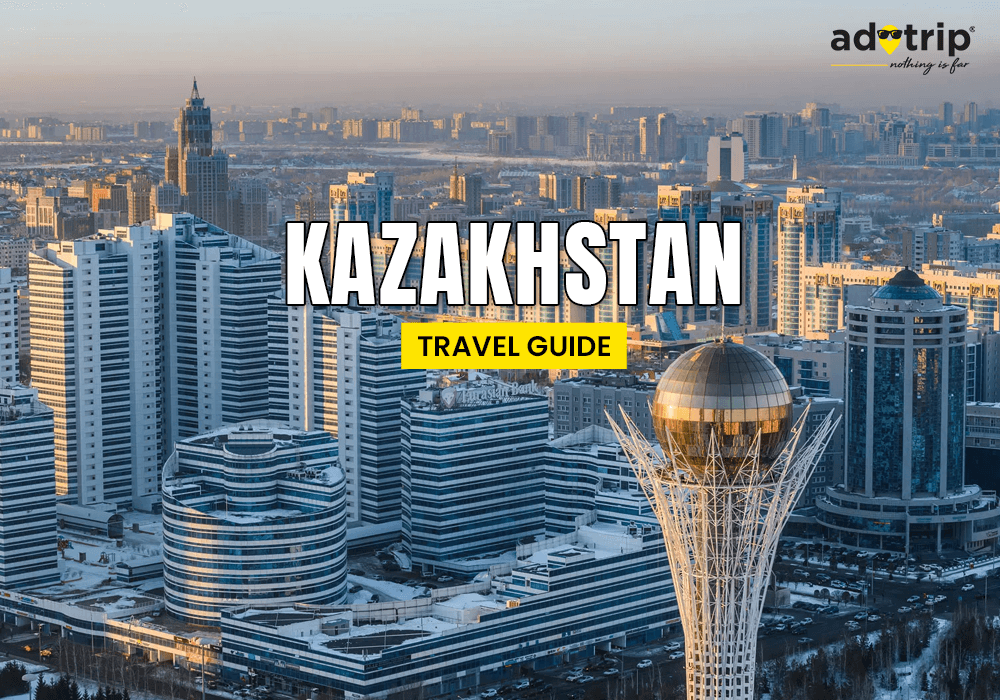
Kazakhstan Travel Guide 2025: Affordable Luxury, Visa Free E...
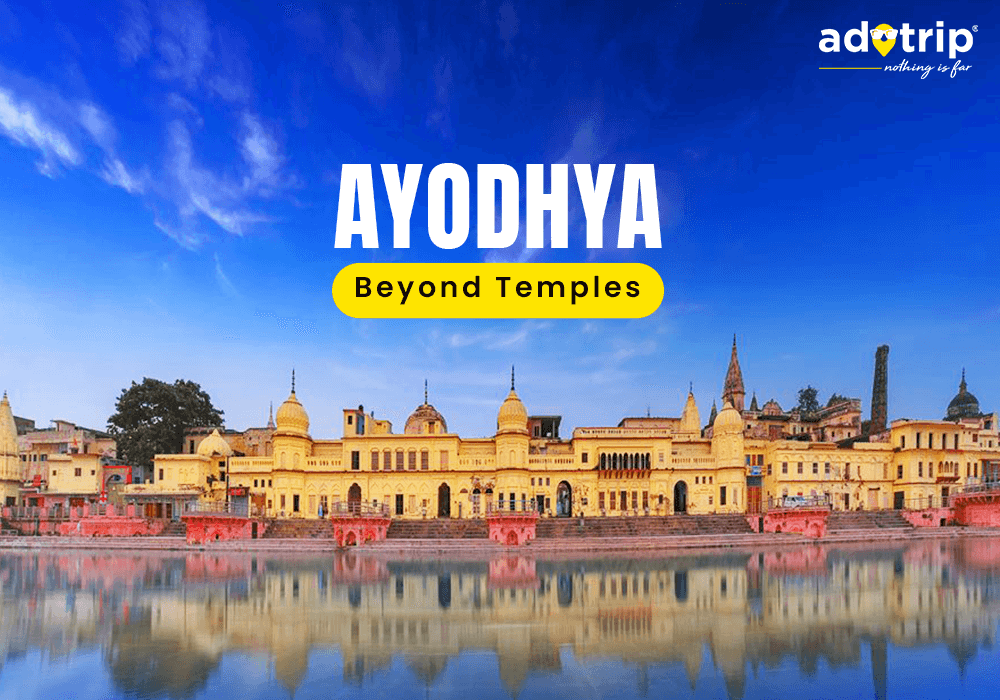
Think Ayodhya is Just Temples? Discover Its Hidden Artistic...
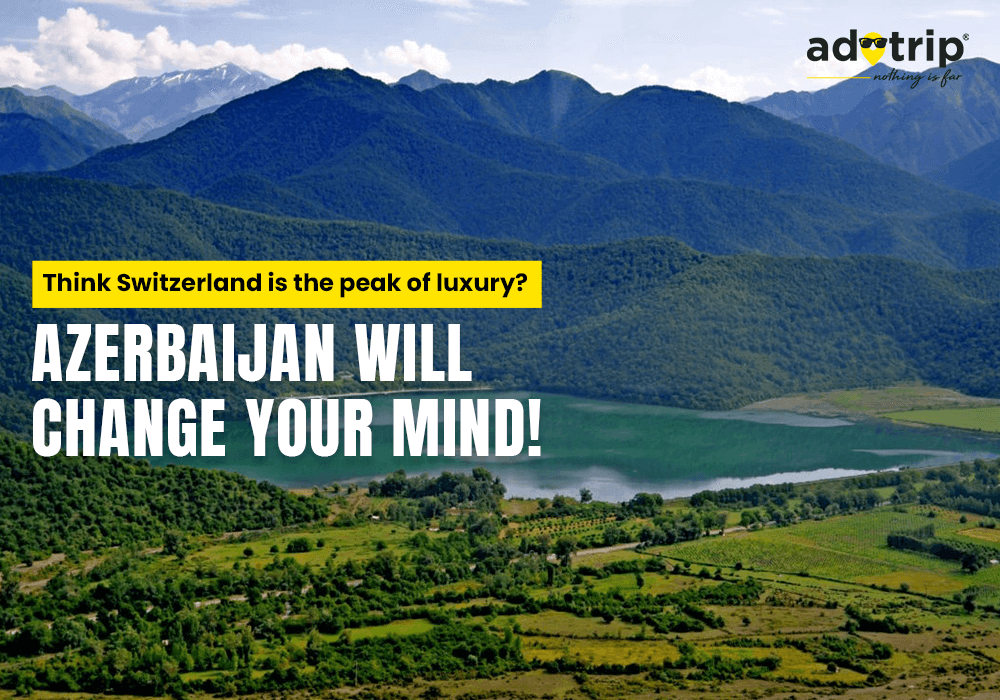
Why Azerbaijan is the Best Budget Friendly Alternative to Sw...
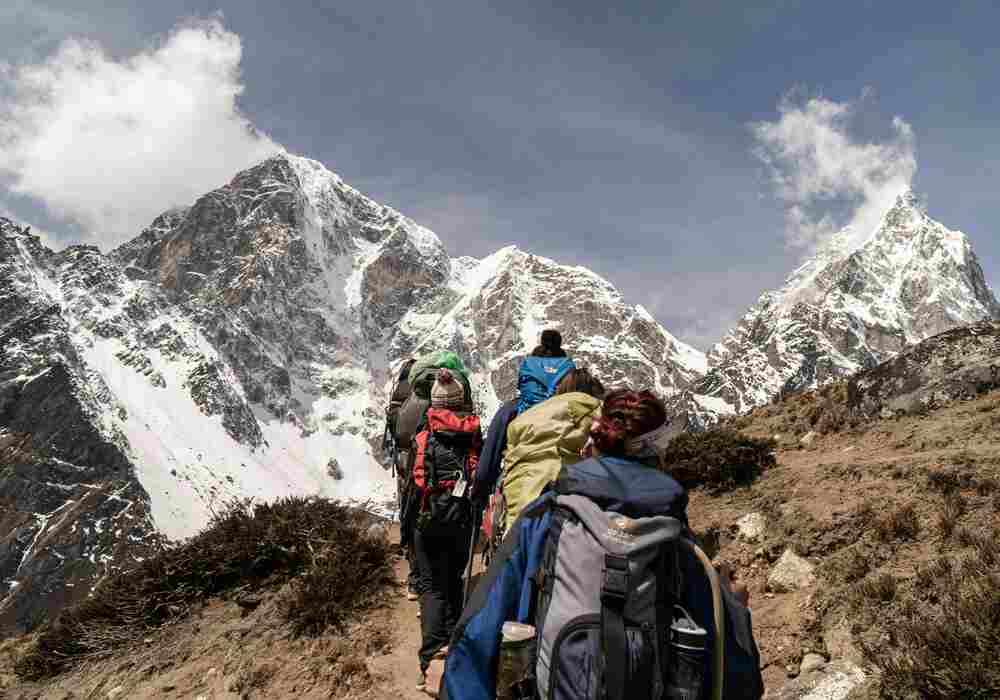


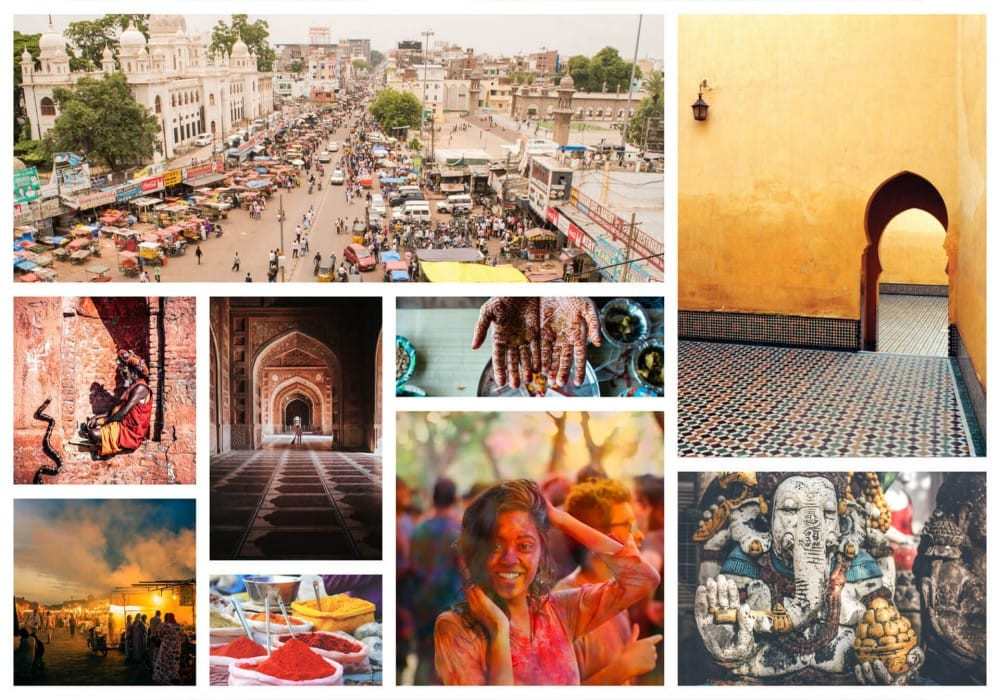

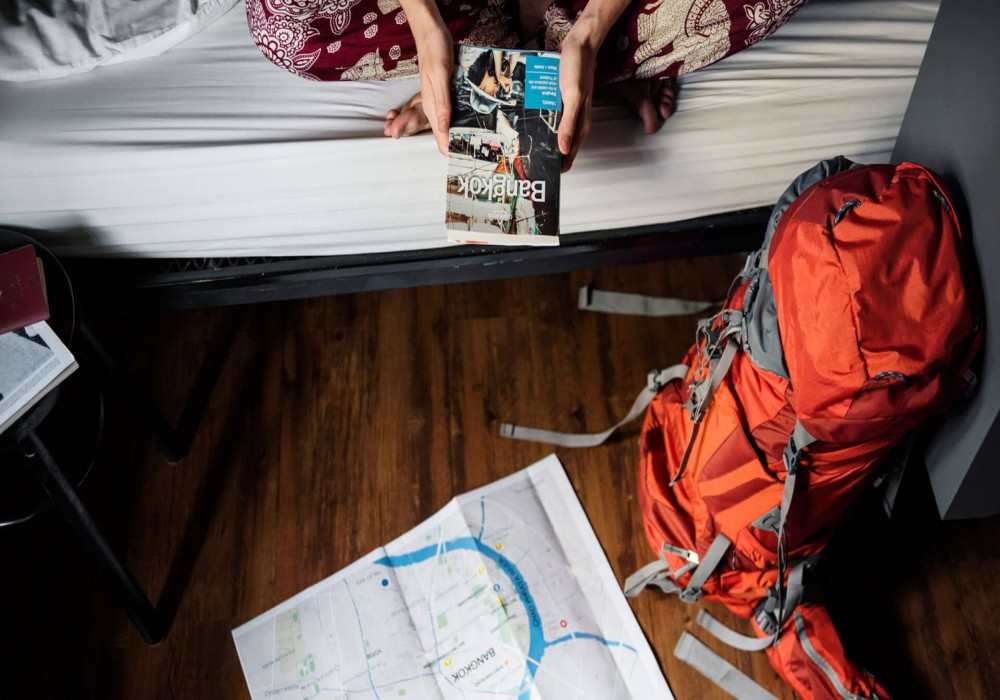

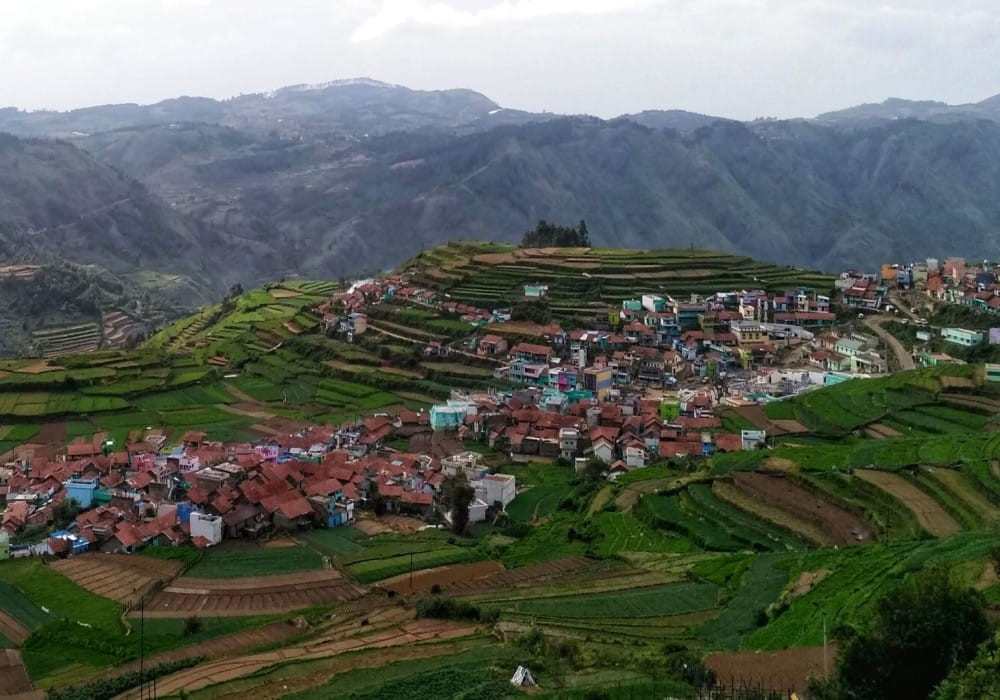

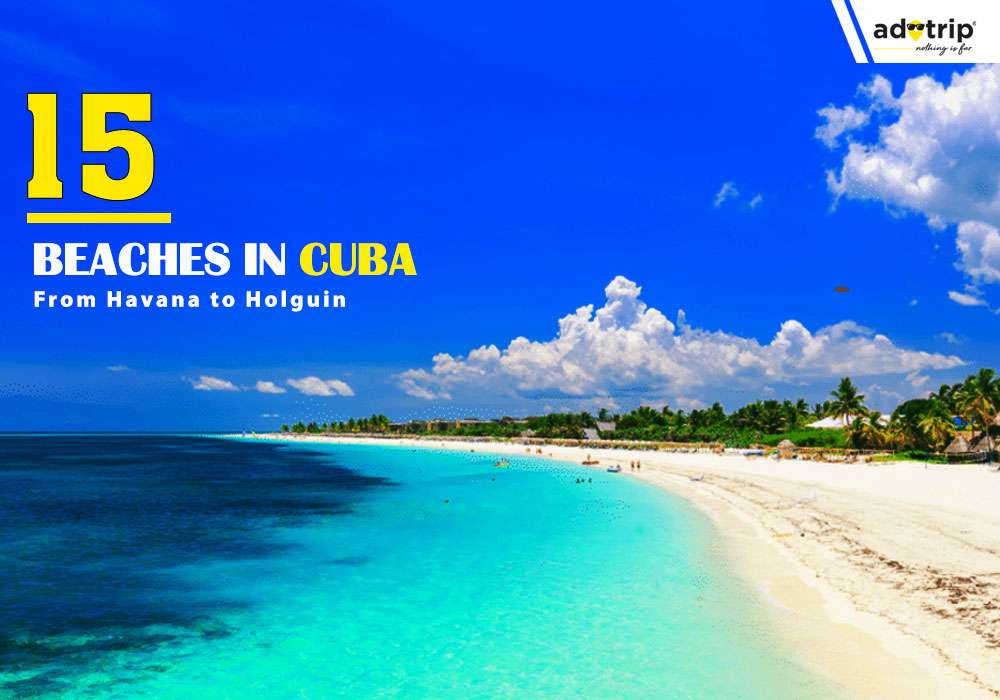
 Dubai
Dubai Malaysia
Malaysia USA
USA





